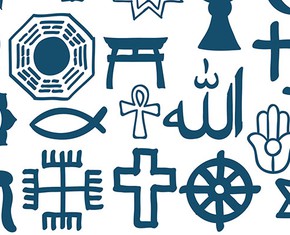The views expressed in our content reflect individual perspectives and do not represent the authoritative views of the Baha'i Faith.
Because love develops organically, every love relationship has predictable stages we need to understand if we want to fully comprehend and appreciate this inherent and relentless passion in our lives.
Bereft of this understanding, we are destined to wander through our lives in an endless quest to discover the object of our yearning. We will likewise fall prey to the post hoc fallacy of assuming that responding to every new source of titillating distraction – whether sexuality, food, possessions, wealth, power, or prestige – can possibly satisfy our desire.
RELATED: The Seven Valleys: A Road Map for Life’s Eternal Journey
In time we may discover that at the heart of each of these attractions is the manifestation or mimicry of some aspect of divine love. But we have a strategic advantage in the process of coming to understand this principal force in our lives if we know from the beginning that the manifestation of love in every relationship we encounter involves successive, predictable stages of advancement.
Baha’u’llah portrays a simple and accessible paradigm of the progress of love in his allegorical work The Seven Valleys. As the title implies, Baha’u’llah outlined seven stages of one’s love relationship with God, although the paradigm is equally illuminating and valid in explaining human love relationships.
Comprehending the first four stages is the most helpful for us, inasmuch as beyond the fourth stage, the lover traverses about in the realms beyond physical limitations, alluded to by Baha’u’llah in such poetic and ineffable terms that we are hard put to do much more than grasp the emotional indices he portrays as alluding to these exalted categories of spiritual experience.
The first stage of love, The Seven Valleys reveals, is the process of searching for the beloved, a stage which requires that the seeker become receptive, pure of heart, and, above all else, aware of the nature of that which is sought. For example, if we understand the attributes of the beloved in ordinary human terms — if our criteria for the beloved consist solely of traditional signs of outward beauty — we are not very likely to discover the true source of our longing. Instead, Baha’u’llah wrote in the first of the seven valleys:
The true seeker hunteth naught but the object of his quest, and the lover hath no desire save union with his beloved. Nor shall the seeker reach his goal unless he sacrifice all things. That is, whatever he hath seen, and heard, and understood, all must he set at naught, that he may enter the realm of the spirit, which is the City of God.
Here the analogy of physical training becomes useful. If we are striving to achieve a state of health, we would do well to follow the advice of a nutritionist rather than ingest those foods that are most appealing because of taste or appearance. But as we train and become more healthy, we quickly discover that foods which are detrimental to our health gradually begin to lose their appeal. We become attracted to foods that give us the nourishment our body needs. In time we begin to avoid those foods that are unhealthy and perceive them as unappealing or even as repulsive.
RELATED: Falling in Love With the Creator
This same principle holds true for our love relationships, particularly our search for the divine physician. Whether we are searching for a life partner or for a prophet of God, our faculty of discernment will be explicitly conditioned by our daily spiritual regimen, even as our quest for physical conditioning is predicated on a healthy spiritual regimen. If we are in a condition of depravity and mindlessly follow our appetitive nature, we are most likely going to be attracted to that which is detrimental to our spiritual development – that which appeals to our crass desires or base instincts.
In this vein, Christ exhorted his disciples to be ready to discover the return of the succeeding messenger of God by employing a simple analogy. If one is looking for a fig tree, one should attempt to discover a tree that has figs. In short, one can discern the quality or type of tree by the fruit it bears. Of course, also implicit in this analogy is that the seeker needs to know what figs look like.
Similarly, in our search for the divine physician we need to know what the attributes of a prophet of God are, as opposed to the attributes of someone falsely claiming to be one.
Baha’u’llah observes that in this beginning stage of searching, the true seeker, in addition to knowing what signs and qualities characterize the beloved, must himself exhibit patience and persistence: “The steed of this Valley is patience;” Baha’u’llah wrote in The Seven Valleys, “without patience the wayfarer on this journey will reach nowhere and attain no goal.”
Stated in the most ordinary terms, if the proper standards for search are applied, and the seeker has sufficient forbearance and fortitude, then in time the healthy seeker will discover one to whom he or she is strongly attracted.
















Comments
Sign in or create an account
Continue with Googleor